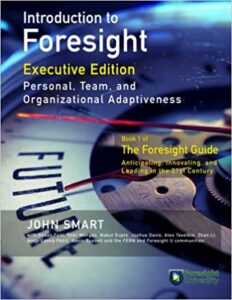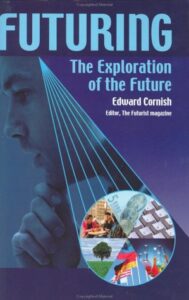Thinking about the future is rooted in the depths of human civilization. From the very beginning of human temporal awareness and the introduction of the concept of time, human beings have thought about the future. Although the memories of the past have had their own charm for human beings, but most of the time, the future has been a more important and focused issue for human beings. Man has realized from the beginning a fact, that the future is the only field in which he is able to shape and influence. Past events cannot be changed much, but the future is a more open context of events and phenomena that can be shaped to a large extent. As man becomes more aware of the passage of time, his approaches to the passage of time and the phenomena and events within it have been formed. One of the main approaches is to believe in destiny and the certainty of the future. Determinism is a belief that has its roots in ancient history and, unfortunately, is still very popular today. The emotional appeal of destiny can be easily understood. According to this belief, we are free to do whatever we feel good about and enjoy in the present. Because we are not able to change the direction of our lives and its events, and our destination has already been determined. That is, we just have to think about the pleasures of the present and enjoy them, and there is no point in thinking and working hard for long-term goals. Because we are not able to plan possible paths to the desired goals, and whatever is in our destiny will happen. Determinism reduces our shame over past mistakes and also does not blame us for not doing anything to succeed. If the future is predetermined, then no one can be held responsible for bad deeds. Because that person will call himself a victim of his destiny and will consider the responsibility of his work on his destiny. Believe in destiny in fact creates a kind of forgiveness for sins, mistakes, weaknesses and so on. To critique the thinking of destiny, we can refer to a few questions.
Question 1: Can we gain knowledge about the future?
Although the world is moving forward by a very complex system, and time can go on indefinitely, we can have useful knowledge, even partial, about the future, because there is a kind of connection and integration between the past and the future. In fact, if there was no connection between the past and the future, we would not be able to think about the future and find possible events at all. In that case, we could only react to events when they occurred.
Question 2: Can the future be affected and improved?
We as a community have little power to shape the future of the world and much less power to shape the future of the universe. But we have tremendous power to improve the future of ourselves and others. Humans are not involuntarily pushed in different directions by natural and social forces. We have considerable power to evaluate past events and future possibilities, to improve our future with calculated actions. That is, we are not prisoners of destiny, but have considerable power to shape the future. Individuals of groups and even countries have the potential to shape their future creatively.
Question 3: Is thinking about the future an urgency and a priority?
It is true that we need to think and solve our essential problems, but it is not true that thinking about immediate and necessary problems prevents us from thinking about the future. The continuity and integration of events from the past to the future is true, which makes futures studies possible, but rapid and sometimes unprecedented changes make it urgency. Today, technological and social changes are happening at a rate that did not exist before. If we do not do more futures research, we will face increasing difficulties in making the right decisions. Good decisions depend entirely on good foresight. Today’s life is very different from the past. In this changing world, customs no longer shape our future, but we must create our own future and be able to prepare ourselves or even our organization and community for change. The new global conditions have created countless opportunities for societies with sufficient foresight, but at the same time, for communities that do not have this foresight, there are catastrophic changes and catastrophic disruption of their structure.

Therefore, futurism should not be forgotten and abandoned due to being too busy and dealing with current crises and issues. We should not believe that “why worry about the future, the future will come and then we can think about it and find a solution.” The future and futures studies are very important and necessary, because we cannot postpone their occurrence. Opportunities and threats do not sit in the waiting room to see if we are ready or not, and then they happen. Quite the contrary, they happen most of the time when we are least prepared. The only noteworthy response we have to these events is to think ahead and be prepared for them in the best possible way. That means we have to start now and not sometime in the future. From what has been said so far, the fundamental difference between foresight and divination can be understood. Rationality and rational analysis governing futures studies are fundamentally different from divination. Also, keeping the issues related to the future and its possible events open is an important difference in the scientific method of futures studies that has to do with divination and talking about the future. According to futurists, the future is still being built. The future is something that people can design and shape with their purposeful actions. Predictions and divination in futures studies are rejected and meaningless. According to futurists, the future is not pre-designed but it is a vast expanse and game that people have different abilities to shape. According to futurists, one of the main reasons that the future is uncertain and ambiguous is that we can influence it and change the course of events, if the future was determined then there should be no ambiguity.


For those who want to get acquainted with present-day techniques that came from Future Studies, I recommend the short booklet published by the World Future Society. I myself started futures studies in 2001 with this booklet. Of course, the book “Introduction to Foresight” by John Smart and Edward Cornish’s book on “Futuring” are also good sources for getting acquainted with futures studies. In the future, I will present more important and in-depth contents about futures studies.

 فارسی
فارسی
